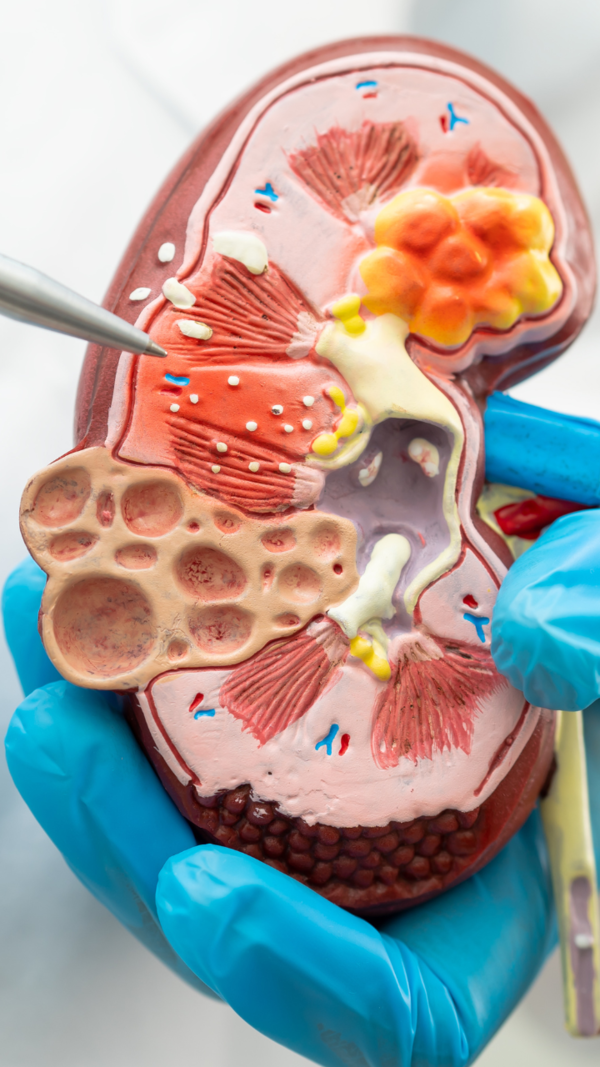World Constipation Month is celebrated in December and hence it's a good opportunity to think upon such health issues that most people tend to neglect, i.e constipation. Despite being one of the prevalent cases in the world, more than 90% of such people have no idea what is wrong with them, which is quite scary. Over the years, I’ve commanded a great number of patients who seek to self-medicate or choose to shift their attention to other matters estimating it would be temporary. In reality however, constipation is a major issue and it’s alarming to stay dormant, for it could mean that something is off with your digestive tract.
Over the years I’ve been lucky enough to talk to many patients who have dealt with such problems. Hence I would like to address some of the questions and misconceptions that tend to surround this very topic of digestion and bowel movements. This could allow you to take better action against any major problems regarding your body while also informing you about not to take medical advice lightly.
Myth 1: Having one bowel movement a day is necessary
It is a common understanding that bowel movements have to occur once per day but that is not how it works. Everyone is different. Some people go three times a day; others, three times a week. It’s common to have a bowel movement once a day. But it's OK to go a few days without one as long as you feel fine. If you have fewer than three per week, you’re constipated. It’s severe if you have fewer than one a week.
Myth 2: Constipation is an ailment only elderly adults have to face.
People share a misconception that constipation is experienced only in older years. Unquestionably on our level of understanding age is crucial to the digestive system however it cannot be understated that teenagers, young adults and adults can also face constipation. The witnesses of the young professionals, students and even teenagers brought these facts to my attention. Stress, diet, little to no exercises, or even medication prescribe can all be factors so you can’t just assume that your younger age does relieve you from it. Every part of your body may signal you if something is off and this is when help should be sourced so no more time can be wasted.
Myth 3: Using laxatives can cure your constipation.
Laxatives are a common form of treatment for many forms of constipation but sometimes are not able to offer a perfect solution. I have so many patients who have been dependent on laxatives for several weeks if not months for absolutely no betterment. Though they do provide temporary relief from the overall issue which is habitual throughout society. And even, there are times when the overuse of laxatives creates a need for them which turns chronic. The most effective way to defeat constipation in the long run is by changing your lifestyle completely meaning inclusions of high fiber food, plenty of water and exercises, and stress control in your day to day routine.A medical professional should be consulted, if this incessant constipation does persist.
Myth 4: Stress does not affect digestion at all
Stress is viewed traditionally as a mental health problem, but in fact it does have a noticeable effect on the system of digestion as well. Over the years, I’ve watched how stress has always negatively affected the proper functioning of the gut. Stress engages our metabolism which does revolve around the fight or flight response, thus leading to factors like constipation and diarrhea. So if there has been a point in time where there were several stressful incidents, then that could influence the function of the digestive system. This would then make sense to say that practicing yoga, meditation, or even going on a vacation, would then help one’s digestion.
Myth 5:Eating more fiber alone will solve constipation
Somewhat respectfully, I would disagree with that since while fiber is important, it should not be over-used as it is not the antidote to constipation. From my personal opinion, drinking enough water is as beneficial if not more. As fiber makes one absorb more water and while being dry it can make constipation worse, one thing it does do is dry the stool. So alongside your fiber diet, ensure that you drink sufficient water too.
Myth 6: Meat aids in digestive processes
Some people believe eating more meat will boost their digestion health but, this is one of the biggest reasons that contributes to constipation. High intake of animal protein and low level of fiber diet the digestive tract. On the other hand, a healthy lifestyle that incorporates whole-grain foods, fruits, vegetables and pulses can enable smooth bowel movements. If you often experience heavy feeling or constipation after eating, it is wise to seek more plant foods and possibly relief from the discomfort.
Myth 7: Suffering from constipation means you always have an underlying health condition
While it is rational to associate constipation with severe conditions such as gastrointestinal diseases or cancer, such assumptions are accurate only in rare cases. The majority of constipation cases are linked to diet, lifestyle, or stress. People should avoid jumping to conclusions or self-diagnosing, as unnecessary worry often leads to more stress. Instead, consulting a health professional early is the best approach to avoid further complications. A specialist can determine whether the issue is minor or indicative of a more serious concern with just one visit. However, certain alarming features of constipation require immediate medical attention. These include blood in the stool, unintentional weight loss, loss of appetite, a feeling of obstruction while passing stool, no or partial response to laxatives, significant and persistent bloating, abdominal pain and vomiting, anemia, any visible lump in the abdomen, or a family history of colonic or gastrointestinal cancer. Recognizing these warning signs and seeking timely care can help identify and manage potential underlying conditions effectively.
Reasons to avoid self-medication A key message I want to convey to you today is: Avoid self-medication. I recognize the allure of using over-the-counter treatments or heeding suggestions from friends or relatives. However, addressing constipation without knowing the underlying cause may result in more serious problems later on. Numerous patients seek my help after dealing with constipation for months or even years themselves, only to realize they could have solved the issue much earlier.
If you're facing constipation or any digestive issues, it's always wise to be cautious and consult a healthcare professional. A physician can assist you in determining the root cause and direct you towards a treatment strategy that is customized to your requirements.
Pay attention to your body and take action accordinglyAs we recognize World Constipation Month, I encourage you to pause and consider your digestive wellness. Your body communicates with you, and it's crucial to pay attention to those signals. Constipation isn't merely a small nuisance—it might indicate that something requires attention. If you’ve been dealing with ongoing constipation or stomach issues, don’t wait for it to worsen. Schedule a visit with your doctor today.
Keep in mind that taking initiative now can help avoid future complications and enhance your overall life quality. Don't delay—your health is important.
Dr. Purushottam Vashistha, Sr Consultant Gastroenterology, Apollo Hospitals Navi Mumbai









